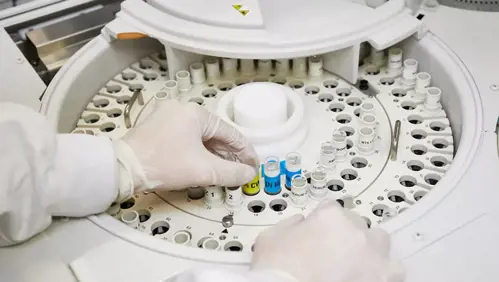Clinical trials evaluate drugs, devices, procedures and other intervention. They measure things like how well an intervention works and if it has any side effects and can last from a few weeks to several years.
For more details about how clinical research trials form part of the overall activity of medical research see about medical research. To find out about clinical trials currently running see the Cancer Research UK trials database. [Link opens in a new window] To volunteer to participate in a clinical research study or trial see take part in a study or trial.
Clinical trial phases
New treatments must successfully complete several phases of clinical trials before they can be licensed for use or recognised as ‘standard of care’ - the best currently available.
- Phase 1 (early) assesses side effects and dose (what amount to give) often for the first time, in small groups of people with cancer.
- Phase 2 evaluates side effects, the effects of one treatment compared with another, or none, over several years in larger groups of people with cancer.
- Phase 3 looks at safety, effectiveness of different doses and combinations and quality of life on a much wider scale involving thousands of people with cancer in several places, often internationally.
- Phase 4 can be needed to monitor effectiveness, safety and side effects in large, diverse populations, some of whom will have the treatment and some will not.
Types of clinical trial
Clinical trials can be designed in several different ways.
- Blind - trial participants don’t know what type of treatment they’re receiving.
- Double blind - trial participants and organisers both don't know what treatment they're receiving.
- Placebo controlled - one group receive a treatment, another doesn't but participants don’t know which group they’re in.
- Randomised controlled - equal groups of randomly selected people receive different treatments or none.
- Open label not randomised - everyone knows what treatment trial participants are going to receive before it starts.

